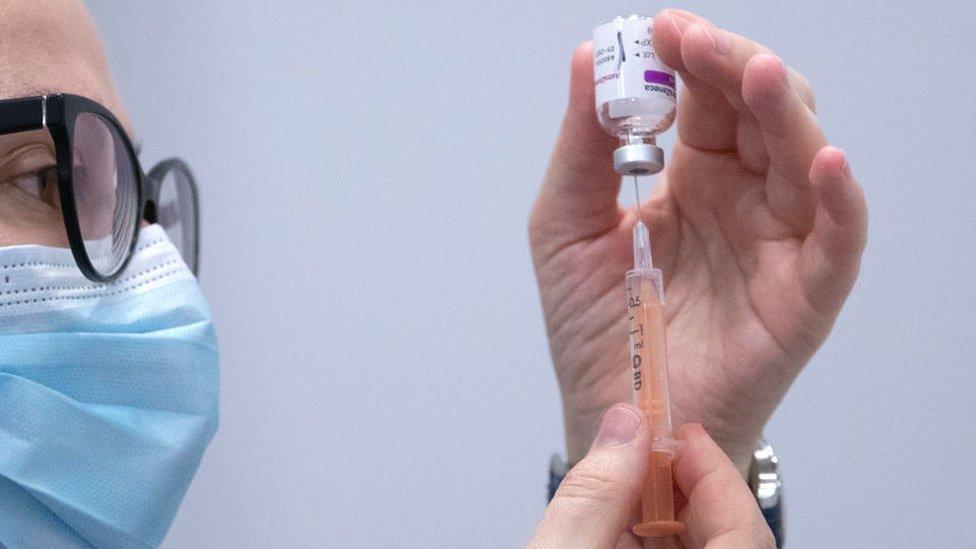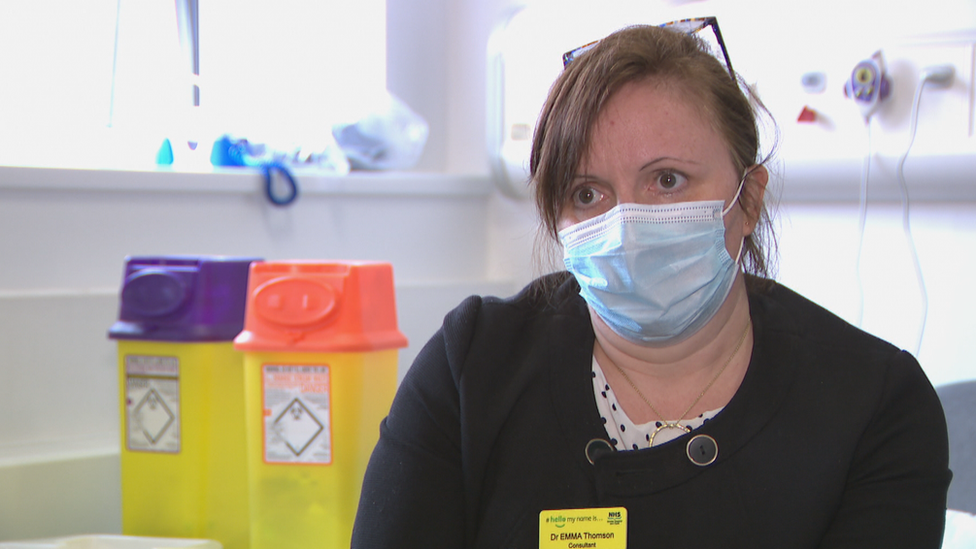Covid in Scotland: Trial of booster vaccines begins in Glasgow
- Published

Clinical trials have begun in Glasgow to see which Covid vaccine works best as a third "booster" jab.
The Cov-Boost study, external will give people a third dose of a vaccine to see whether it offers extra protection against the virus.
Researchers say that while the vaccines are highly effective at preventing severe disease, the emergence of new variants makes booster shots likely.
Doctors are now looking to recruit people aged over 70.
They have already recruited volunteers over 30 who have had two doses of a vaccine.
The participants will each get one booster, either a placebo or a vaccine, which could be a different vaccine to the one they originally received.
Afterwards they will be monitored for any reaction and their immune response will also be measured over the next year, although initial results from the data are expected in September.
This will help inform decisions by public health officials on any potential booster programme from the autumn.
The government-funded trial is taking place at 18 sites across the UK and is said to be the first study in the world to provide vital data on the impact of a third dose on patients' immune responses.
Initially, The Queen Elizabeth University Hospital in Glasgow will be the only site in Scotland where the trial will take place. However, volunteers do not have to live in the city as long as they are willing travel to the hospital about four times over the next year to take part.
It follows the discovery of variants of the virus which contain mutations that potentially make the immune response from vaccination less effective.
Nearly 3,000 people will initially be recruited to take part in the study, with different combinations of seven Covid vaccines given to those who are not in the control group.
The control group will be given the meningitis vaccine as a placebo.
New variant concern
Four Covid vaccines are currently approved for use in the UK (Oxford-Astra Zeneca, Pfizer-BioNTech, Moderna and Janssen), with researchers saying they will consider three more (Valneva, Novavax and Curevac) which the UK has ordered that may be approved later in the year.
The Novavax, Valneva and Pfizer/BioNTech vaccines may also be trialled as a half dose. If this is effective, it could allow for double the number of vaccinations to be given using the same supply.
The team will also study whether a half dose of these vaccines causes less of the common vaccine side effects such as fever or sore arm while still providing adequate boost to the immune response.
Researchers also hope to find out if different vaccine combinations will provide an adequate level of increased protection.

Prof Emma Thomson is leading the booster vaccine trial in Glasgow
The Cov-Boost study is being led in Glasgow by Glasgow University's Centre for Virus Research, and staff from NHS Greater Glasgow and Clyde.
Lead researcher Prof Emma Thomson said the virus was evolving over time and that scientists needed to keep ahead of it.
She said there was concern that new variants could be more infectious or more resistant to vaccines.
Prof Thomson added: "We're particularly keen to see people who received the vaccine early, and people in over 70 age group."
In particular, researchers want to speak to those who received the Oxford vaccine between December 2020 and February 2021.
She said of the elderly: "It's a very important age group - we know Covid is much more severe in people who are elderly and age is the largest risk factor so we especially want to know if these booster vaccines are going to work in people who are a bit older.
"And we're also very keen to see people who're over 30 and have had the AstraZeneca vaccine."

